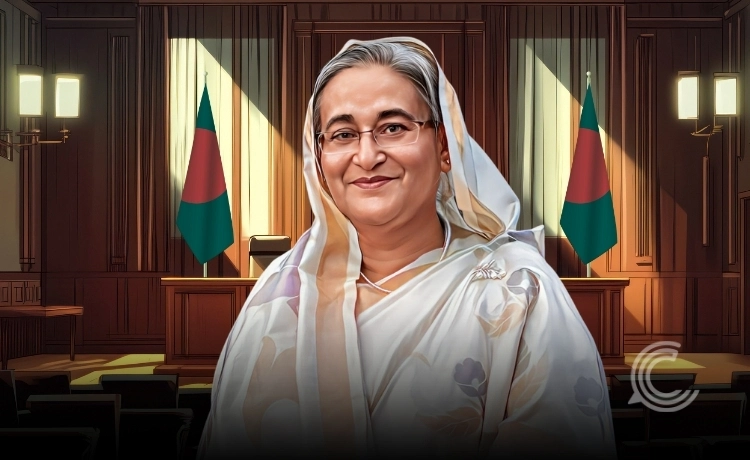Hasina Verdict on Nov 17 Puts Bangladesh’s Democracy on Trial

Key Highlights–
- Bangladesh court to deliver verdict against former PM Sheikh Hasina on Nov 17.
- Trial in absentia alleges crimes against humanity during the 2024 crackdown.
- Ruling could reshape Bangladesh’s political and democratic future.
Bangladesh is bracing for one of its most consequential legal rulings in decades, as judges prepare to deliver the verdict in the crimes against humanity trial of fugitive former Prime Minister Sheikh Hasina on November 17.
The decision will mark a defining moment for a nation still reeling from the political and social upheaval that followed Hasina’s dramatic ouster in August 2024.
Hasina Verdict on Nov 17 Puts Bangladesh’s Democracy on Trial
Once hailed as the longest-serving leader in Bangladesh’s history, Hasina now stands accused of ordering a violent military and police crackdown to suppress a student-led uprising demanding free elections and an end to alleged corruption and authoritarian rule.
According to UN estimates, more than 1,400 people were killed during weeks of protests and street clashes that engulfed Dhaka and other major cities.
The trial, which began in June 2024, has been conducted in absentia, as Hasina defied court summons and fled to India shortly after her removal. Prosecutors have charged her with five counts, including failure to prevent murder and ordering mass killings, calling for the death penalty if found guilty.
A Nation on Edge
Security has been tightened across Dhaka, with armoured vehicles stationed near the courthouse. Hasina’s banned party, the Awami League, has declared a nationwide “lockdown”, demanding what it calls a fair trial.
Tensions have escalated further amid a wave of petrol bomb attacks targeting government buildings, buses, and Christian sites. On November 11, one man died when his parked bus was set ablaze, an incident officials link to political unrest.
In a sign of rising diplomatic friction, Bangladesh’s foreign ministry on Wednesday summoned India’s envoy, urging New Delhi to restrict Hasina’s public remarks while she remains on Indian soil.
“Harbouring such a notorious fugitive and granting her a platform to spew hatred are unhelpful to fostering constructive bilateral ties,” the ministry said in a statement carried by state-run BSS news agency, as cited by CNA.
How the Verdict Could Redefine Bangladesh’s Democracy
The upcoming verdict in the Hasina case could reshape Bangladesh’s democratic trajectory. Analysts say the ruling will test the credibility of the interim government led by Nobel laureate Muhammad Yunus, who came to power after Hasina’s fall.
If Hasina is convicted, it may consolidate Yunus’s legitimacy and mark a symbolic break from decades of dynastic politics. However, if she’s acquitted or receives a lenient sentence, it could revive old political divisions, potentially destabilizing the fragile post-Hasina transition.
Either way, the Hasina verdict will serve as a litmus test for Bangladesh’s judiciary and governance. As the nation awaits judgment, the broader question looms: can Bangladesh chart a democratic path free of vengeance and political retribution?
Justice and Governance in a post-Hasina Bangladesh
The Hasina verdict carries implications that stretch far beyond legal accountability; it represents a critical moment for Bangladesh’s global image and institutional credibility. For years, the country has oscillated between periods of rapid economic growth and deep political turmoil, with allegations of authoritarianism, human rights abuses, and electoral manipulation shadowing Hasina’s long rule.
Observers note that the case will likely shape how the world perceives the country’s ability to conduct fair trials and manage political transitions without descending into chaos. Meanwhile, the civil society groups fear the verdict could deepen existing divides if perceived as politically driven rather than evidence-based.
Essentially, November 17 will not only determine Hasina’s fate but will also test whether Bangladesh can evolve from a history of power struggles into a democracy founded on accountability, transparency, and institutional integrity. The world, and millions of Bangladeshis, will be watching.



